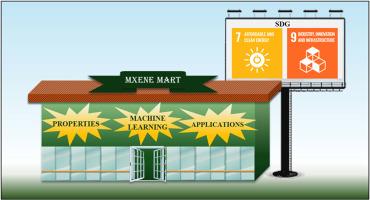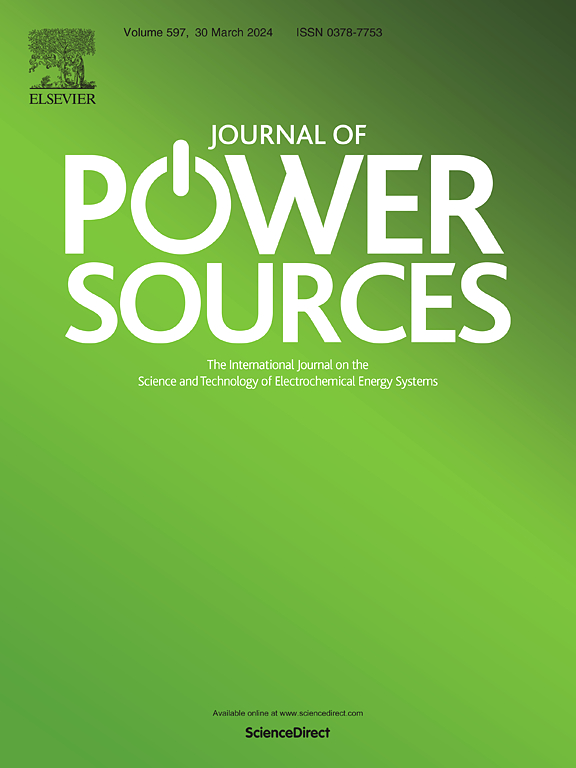MXene material for supercapacitor applications: A comprehensive review on properties, synthesis and machine learning for supercapacitance performance prediction
IF 7.9
2区 工程技术
Q1 CHEMISTRY, PHYSICAL
引用次数: 0
Abstract
Rapidly increasing population has raised demand for energy thus elevating the research on energy storage devices. Supercapacitors, with its wide range of features including high capacitance, high power density, and high cyclic stability has proved itself to be a remedy to the energy crisis faced globally. The advent of MXenes, a class of two-dimensional transition metal carbides or nitrides (TMCN) having excellent features including good electrical conductivity, pseudocapacitive nature and hydrophilic nature makes it as a potential material for the efficient electrode for supercapacitor application. This material offers a blend of metallic conductivity and abundant redox-active sites, therefore enabling charge storage mechanisms like electric double-layer capacitance and pseudocapacitance mechanisms contributing to clean and affordable energy. In this paper, we review the advancements in research on MXene material for supercapacitor application, including the properties, synthesis techniques of MXene ranging from HF etching to environment friendly fluoride-free approaches, MXene-based materials for supercapacitor application, and much more. Additionally, ML approaches for predicting supercapacitor performance are also discussed. This review provides a holistic and forward-thinking perspective of MXenes in supercapacitor applications, addressing critical challenges and outlining future research directions that are indispensable to bridge the gap that exists between academic advancement and industrial implementation.

MXene材料在超级电容中的应用:性能、合成和机器学习在超级电容性能预测中的综合综述
快速增长的人口增加了对能源的需求,从而推动了对储能装置的研究。超级电容器具有高电容、高功率密度、高循环稳定性等特点,是解决全球能源危机的良药。MXenes是一类二维过渡金属碳化物或氮化物(TMCN),具有良好的导电性、赝电容性和亲水性等优良特性,是超级电容器高效电极的潜在材料。这种材料提供了金属导电性和丰富的氧化还原活性位点的混合,因此能够实现电荷存储机制,如双层电电容和赝电容机制,有助于清洁和负担得起的能源。本文综述了用于超级电容器的MXene材料的研究进展,包括MXene的性质、从HF刻蚀到环境友好型无氟方法的合成技术、MXene基超级电容器材料等。此外,还讨论了预测超级电容器性能的机器学习方法。本综述提供了MXenes在超级电容器应用中的整体和前瞻性视角,解决了关键挑战并概述了未来的研究方向,这些方向对于弥合学术进步和工业实施之间的差距是必不可少的。
本文章由计算机程序翻译,如有差异,请以英文原文为准。
求助全文
约1分钟内获得全文
求助全文
来源期刊

Journal of Power Sources
工程技术-电化学
CiteScore
16.40
自引率
6.50%
发文量
1249
审稿时长
36 days
期刊介绍:
The Journal of Power Sources is a publication catering to researchers and technologists interested in various aspects of the science, technology, and applications of electrochemical power sources. It covers original research and reviews on primary and secondary batteries, fuel cells, supercapacitors, and photo-electrochemical cells.
Topics considered include the research, development and applications of nanomaterials and novel componentry for these devices. Examples of applications of these electrochemical power sources include:
• Portable electronics
• Electric and Hybrid Electric Vehicles
• Uninterruptible Power Supply (UPS) systems
• Storage of renewable energy
• Satellites and deep space probes
• Boats and ships, drones and aircrafts
• Wearable energy storage systems
 求助内容:
求助内容: 应助结果提醒方式:
应助结果提醒方式:


